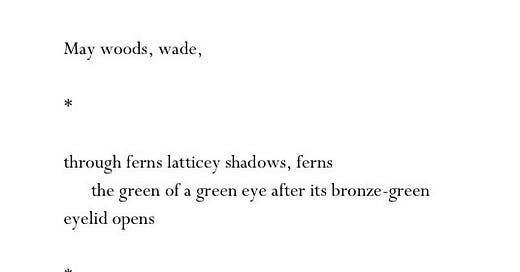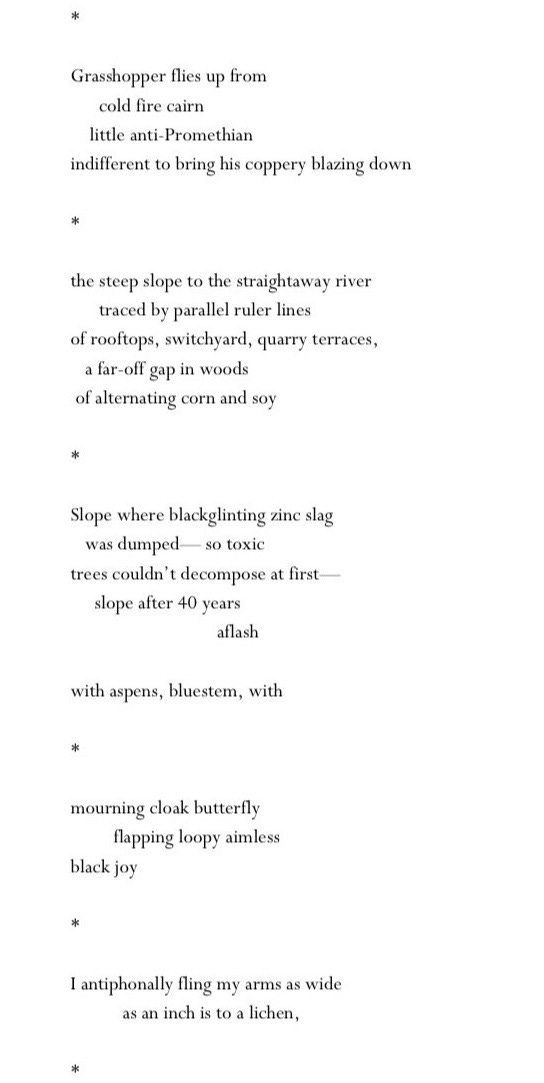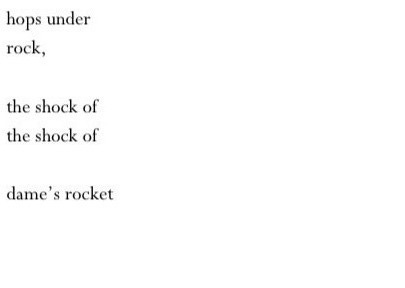THE SHOCK OF BEING
a LitCafe🔥slow-reading resuscitation for the mugged mind, this time through woods
The problem with eco-poets, and I can say this because I did time as one, is that you could lose your phone in the furrow between their brows. They’re either brimstoning about how horrifying humans are (we are) or ululating over some firehosing beauty (we are this too). Both are valid stances, but really, friends, among the bird-ID-ing eulogizers there’s “never a tune you could dance to, not if you were drunk as Davy’s sow1.”
Cut to my friend Brandon Krieg, who, last time I saw him, was wearing a plastic bracelet. It looked a little like those boondoggle thingies preteen girls in the 90s would gift each other, proof of the time and earnestness they and their braiding fingers were willing to sink for you. That’s a fantastic bracelet, I said, and he replied with something like, Yeah! We went to the mall, and it was horrible, and I really wanted something at the mall, and I got this because I can get something at the mall too, you know.
I already had plenty of respect for Brandon, but the bracelet put me over the edge. It said something about him, in a single peachy-pink plastic embrace— something I’d already seen and tried to say in my blurb for the back of his new book, Users with Access: New and Selected Poems:
…[Krieg’s] felt complicity in the violence of our world qualifies him to access its sublimity: there is no harm or loss here that fails to offer vast and spreading clarity; there is no cruelty that does not contain the possibility of divine gentleness.
Here’s a guy who wants the pink plastic junk at the mall, who feels protective of his own desire for said junk, despite and because of the awfulness of malls and of junk, and who will say all of that, con brio, such that both he and the junk are elevated to a state of given— and received— tenderness. The whole operation gets a sort of halo of gravity and care drawn around it, all while the artist laughs at and with himself.
In other words, he’s not a tool, and we can trust him with our busted hearts and molded-over minds. This is all a much rarer state of affairs in the world than one might wish. That’s why I find it deeply salutary to read his poems.
Here is one from his new book, which I include as a series of screenshots, since Substack has a formatting allergy. The first thing you will note, if you are like me, is that it looks suspiciously long for a poem. Don’t worry— he makes provision for that, as well, by moving in fragments that have the apparent freedom of confetti. In other words, you have permission to swirl and tumble through the poem just like a hike through the woods. The story, as it were, comes together later. So take a deep breath and let go. When I move through it, afterwards, I’ll move one chunk at a time, but for now, we tumble.







